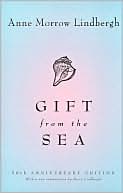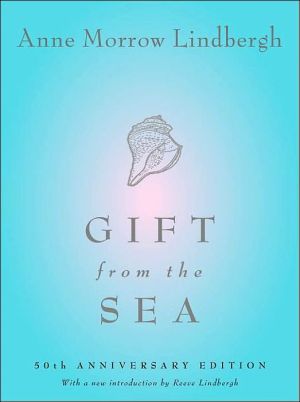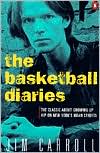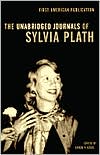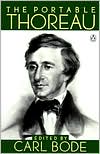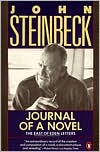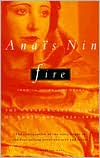Journals of Ayn Rand
Rarely has a writer and thinker of the stature of Ayn Rand afforded us access to her most intimate thoughts and feelings. Yet throughout her remarkable lifetime, beginning with her arrival in America from Soviet Russia as a passionately ambitious young woman, to her final years of unparalleled fame as a novelist/philosopher, Ayn Rand kept voluminous journals. We share her painful memories of Communist Russia and her struggles to bring them to dramatic life in We the Living. And we see the...
Search in google:
Rarely has a writer and thinker of the stature of Ayn Rand afforded us access to her most intimate thoughts and feelings. From Journals of Ayn Rand, we gain an invaluable new understanding and appreciation of the woman, the artist, and the philosopher, and of the enduring legacy she has left us. Rand comes vibrantly to life as an untried screenwriter in Hollywood, creating stories that reflect her youthful vision of the world. We see her painful memories of communist Russia and her struggles to convey them in We the Living. Most fascinating is the intricate, step-by-step process through which she created the plots and characters of her two masterworks, The Fountainhead and Atlas Shrugged, and the years of painstaking research that imbued the novels with their powerful authenticity. Complete with reflections on her legendary screenplay concerning the making of the atomic bomb and tantalizing descriptions of projects cut short by her death, Journals of Ayn Rand illuminates the mind and heart of an extraordinary woman as no biography or memoir ever could. On these vivid pages, Ayn Rand lives. Publishers Weekly Strictly for the lovers and loathers of Ayn Rand (perhaps an equal market share), this work offers almost everything the author ever wrote to herself. As intriguing yet sometimes numbing as her fiction, the book, which covers the years from 1927 to the mid-1970s, contains her first philosophical stabs, notes on her novels, HUAC testimony against alleged Hollywood communists, and her unfinished projects. Rand fans who marveled at the detail and richness of The Fountainhead and Atlas Shrugged can now examine her research as well as confirm suppositions as to who inspired what characters (yes, Frank Lloyd Wright inspired Howard Roark). For the despisers of Ayn Rand, there are numerous paroxysms on the sanctity of money, the spirituality of materialism and the genius of the rich. In Rand's fiction, her most original assertionsa vision of engineers, industrialists and architects heroically forcing the world to turn, despite the untalented, the mediocre and, of course, the collectivist parasite (i.e., communists)were generally followed by the hero's endless, repetitious rants on the value of individualism. Unfortunately, her journals are similarly afflicted. Comic relief comes when she notes her frustrations with her real-life role models, as when Wright fails to live up to the Roark ideal: "How does one get to that?" The radical energy and convictions of the author continue to invigorate, challenge and annoy. Somewhere between Emily Bront and L. Ron Hubbard, between a romantic virtuoso and capitalist cult leader, Rand seduces with her amazing prose her philosophic pronouncements become the propaganda she wished to combat. (Sept.)
ForewordEditor's PrefacePt. 1Early ProjectsCh. 1The Hollywood Years3Ch. 2We the Living49Ch. 3First Philosophic Journal66Pt. 2The FountainheadCh. 4Theme and Characters77Ch. 5Architectural Research117Ch. 6Plot165Ch. 7Notes While Writing190Pt. 3Transition Between NovelsCh. 8The Moral Basis of Individualism243Ch. 9Top Secret311Ch. 10Communism and HUAC345Pt. 4Atlas ShruggedCh. 11The Mind on Strike389Ch. 12Final Preparations483Ch. 13Notes While Writing: 1947-1952549Ch. 14Notes While Writing Galt's Speech645Pt. 5Final YearsCh. 15Notes: 1955-1977667Ch. 16Two Possible Books697Index717
\ Publishers Weekly - Publisher's Weekly\ Strictly for the lovers and loathers of Ayn Rand (perhaps an equal market share), this work offers almost everything the author ever wrote to herself. As intriguing yet sometimes numbing as her fiction, the book, which covers the years from 1927 to the mid-1970s, contains her first philosophical stabs, notes on her novels, HUAC testimony against alleged Hollywood communists, and her unfinished projects. Rand fans who marveled at the detail and richness of The Fountainhead and Atlas Shrugged can now examine her research as well as confirm suppositions as to who inspired what characters (yes, Frank Lloyd Wright inspired Howard Roark). For the despisers of Ayn Rand, there are numerous paroxysms on the sanctity of money, the spirituality of materialism and the genius of the rich. In Rand's fiction, her most original assertionsa vision of engineers, industrialists and architects heroically forcing the world to turn, despite the untalented, the mediocre and, of course, the collectivist parasite (i.e., communists)were generally followed by the hero's endless, repetitious rants on the value of individualism. Unfortunately, her journals are similarly afflicted. Comic relief comes when she notes her frustrations with her real-life role models, as when Wright fails to live up to the Roark ideal: "How does one get to that?" The radical energy and convictions of the author continue to invigorate, challenge and annoy. Somewhere between Emily Bront and L. Ron Hubbard, between a romantic virtuoso and capitalist cult leader, Rand seduces with her amazing prose her philosophic pronouncements become the propaganda she wished to combat. (Sept.)\ \ \ \ \ Library JournalRand (1905-82), the controversial author and founder of Objectivism (the philosophy of rational self-interest), continues to have a loyal following. This current work consists of her previously unpublished working notes (1927-60s). It is not a personal memoir (an authorized biography is forthcoming) but a glimpse into the evolution of Rand's thought processes and writing over four decades. Over half the book, arranged chronologically, is devoted to the composition of Rand's most important novels, Atlas Shrugged and The Fountainhead. Harriman (a Ph.D. candidate in philosophy, Claremont Graduate Sch.) carefully considers plot, theme, dialog, character development, etc., and provides succinct annotations that are bracketed within Rand's text. A companion to the Letters of Ayn Rand (Dutton, 1995), this is recommended for larger literature, philosophy, and political science collections, as well as any library with patrons interested in Rand.Janice E. Braun, Mills Coll., Oakland, Cal.\ \ \ Kirkus ReviewsBoth those inspired and those irritated by Rand's radical individualism will find support for their response in her journals.\ Sympathetic readers will enjoy sketches of unfinished projects, philosophical fragments, essays and testimony about communists in Hollywood, and extensive notes for her two major novels. Harriman's (Philosophy/Claremont Graduate School) sycophantic but helpful comments guide the reader through the unpublished material of an unwavering proponent of individualism and capitalism who is not afraid to condemn altruism or dismiss democratic authority with scorn. Indeed, the ease with which she labels most people "parasites" suggests that Rand was born too soon: Her self-confident dismissals of all who disagree would have made her a phenom on Crossfire or talk radio. Others will be struck by what is absent here: For Rand there are no open questions. She explicitly started "with a set of ideas" and then studied "to support them." An instinctual antipathy to collectivism born of a childhood spent under communist rule established the substance of the writer's worldview, and her subsequent intellectual activity involved communicating convictions rather than exploring them. Fiction provided an outlet for this ideological single-mindedness, allowing her version of reality to be presented through fantasy worlds shorn of anything inconsistent with her beliefs. To demonstrate how individualism and collectivism work "in real life" and acceptance of a flawed concept such as charity results when we depart "from facts," Rand wrote novels representing, she said, "the kind of world I want." Even when recognizing that her idealization of the defendant in an actual criminal trial was probably inaccurate, she claimed that it "does not make any difference," for even if he was not as she perceived him, "he could be, and that's enough."\ This volume reveals not only how strong conclusions can flow from trumping fact with fiction, but also why Rand seemed to be living on another planet.\ \ \

